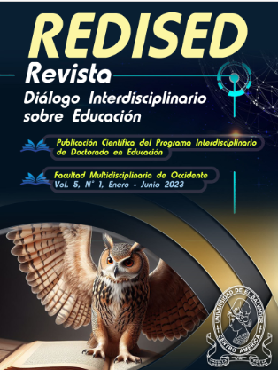Formación Docente y la Aplicación de la Neurodidáctica en la Enseñanza Superior
Keywords:
neuroscience, neuroeducation, neurodidactics, teacher trainingAbstract
: Due to the need to restructure and innovate educational systems, the neuroeducation and neurodidactic foundations represent an option that promises to improve and innovate teaching processes by incorporating strategies that take into account how the brain learns. The fact that teachers are trained to put this knowledge into practice becomes a latent necessity for all educational levels, including higher education. For this reason, in the present study the objective of this study was established: to find out if the teachers of the Faculty of Education of the Universidad Galileo have learned about neurodidactics. Based on this, the specific objective was to identify which elements of neurodidactics are applied by teachers in their teaching methodologies. The study was based on a qualitative approach, with a descriptive scope and a non-experimental design. Fourteen teachers from the mentioned Faculty participated in the study. The results obtained demonstrated that most of the teachers not only have not received training in neurodidactic contents, but that half of them were not trained to become teachers either. However, some teachers apply, in a certain degree, some strategies related to neurodidactics foundations intuitively or because of their teaching experience
Downloads
References
Barrientos, P. (2018). Modelo educativo y desafíos en la formación docente. Horizonte de la Ciencia, 8(15), 175-191. https://www.redalyc.org/articulo.oa?id=570960688014
Barroso, J., Cabero, J., & Valencia, R. (2020). Visiones desde la Neurociencia-Neurodidáctica para la incorporación de las TIC en los escenarios educativos. Revista de Ciencias Sociales Ambos Mundos (1), 7-22. doi: https://doi.org/10.14198/ambos.2020.1.2
Fuentes, A., Collado, J. (2019). Fundamentos epistemológicos transdiciplinares de educación y neurociencia. Colección de Filosofía de la Educación, 26(1), 83-113. https://www.redalyc.org/ journal/4418/441857903002/html/
Gil, R. L. (21 de junio de 2015). Neuroeducación, un nuevo paradigma educativo. El nuevo diario. https:// www.elnuevodiario.com.ni/opinion/362850-neuroeducacion-nuevo-paradigma-educativo/
Goset, J y Zumelzu, E. (2021). Aplicación de la neurodidáctica en el diseño de una mejora docente. InterCambios 8(2). http://www.scielo.edu.uy/scielo.php?pid=S230101262021000200041 &script=sci_arttext
Lozoya, E., Amaya, S., & Lozoya, R. (2018). La neurociencia cognitiva en la formación inicial de docentes investigadores educativos. Ciencia y Educación, 2(3), 11-25. http://revistas.ult.edu.cu/index.php/ didascalia/article/view/869
Mendoza, E. Y., Murillo, G., & Morales, A. (2019). La enseñanza-aprendizaje en la educación superior: Aportaciones desde la neurodidáctica. Didáctica y Educación, 10(2), 21-36. http://revistas.ult.edu. cu/index.php/didascalia/article/view/869
Riaño, A., Cely, D., & Gutiérrez, C. (2017). Neuroeducación: una revisión teórica con miras al fortalecimiento de la permanencia estudiantil en contextos universitarios. Congreso CLABES VII,. Córdoba, Argentina. https://revistas.utp.ac.pa/index.php/clabes/article/view/1628
Rojas, Y. (2019). Neuroaprendizaje: Nuevas propuestas en la formación universitaria. Apuntes de Ciencia y Sociedad, 8(2). https://journals.continental.edu.pe/index.php/apuntes/article/view/661
Tacca, D., Tacca, A., & Alba, M. (2021). Estrategias neurodidácticas, satisfacción y rendimiento académico en estudiantes universitarios. Cuadernos de Investigación Educativa, 10(2), 15-32. https://www. redalyc.org/articulo.oa?id=443663068002
UNESCO.ORG. (2019). https://es.unesco.org/themes/docente
Downloads
Published
Issue
Section
License

This work is licensed under a Creative Commons Attribution-NonCommercial 4.0 International License.


